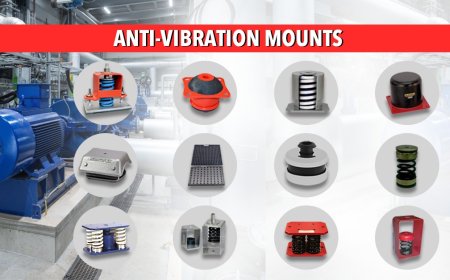Powering Britain’s Green Future: The Role of Solar PV Installers in the UK
As the UK intensifies its efforts to combat climate change and reduce carbon emissions, renewable energy solutions have become central to the countrys energy strategy. Among these solutions, solar photovoltaic (PV) technology stands out as one of the most accessible and rapidly growing sources of clean energy. Behind the successful deployment of solar PV systems are skilled professionals known as solar PV installers. These experts play a vital role in helping homes, businesses, and communities across the UK harness the power of the sun. This article explores the significance, services, and future of solar PV installers in the UK.
The Growing Importance of Solar Energy in the UK
Solar energy has experienced a remarkable rise in popularity in the UK, despite the countrys relatively modest sunshine levels compared to sunnier parts of the world. Advances in solar panel technology and decreasing installation costs have made solar PV a viable and attractive option for many. The UK governments commitment to achieving net-zero carbon emissions by 2050 has accelerated the adoption of solar energy across residential, commercial, and industrial sectors.
Solar PV systems convert sunlight directly into electricity, providing a clean, sustainable energy source that reduces reliance on fossil fuels. They help lower electricity bills, increase energy independence, and contribute significantly to environmental preservation. However, the success of solar energy largely depends on professional installation to ensure system efficiency, safety, and longevity.
Who Are Solar PV Installers?
Solar PV installers are certified technicians and electricians trained to design, install, and maintain solar photovoltaic systems. Their expertise covers a wide range of skills, including electrical wiring, roofing, system design, and compliance with safety and regulatory standards.
In the UK, solar PV installers must adhere to strict guidelines set by industry bodies such as the Microgeneration Certification Scheme (MCS) and the Renewable Energy Consumer Code (RECC). These certifications guarantee that installers meet quality standards, ensuring that customers receive reliable and safe solar installations.
Key Services Provided by Solar PV Installers
Solar PV installers offer comprehensive services that go beyond merely fitting solar panels on rooftops. Their responsibilities typically include:
-
Site Assessment and Consultation: Evaluating the propertys suitability for solar installation, considering roof orientation, shading, structural integrity, and energy consumption patterns.
-
System Design: Customizing a solar PV system that meets the clients energy needs and budget, including selecting the right type and number of panels, inverters, and battery storage options.
-
Installation: Safely mounting solar panels and connecting them to the electrical system. This phase requires precision and expertise to maximize energy production and ensure compliance with building and electrical codes.
-
Grid Connection: Coordinating with energy suppliers and distribution network operators to ensure the solar system is properly connected to the national grid, allowing excess electricity to be exported or imported when needed.
-
Maintenance and Repairs: Providing ongoing service to keep the solar PV system operating efficiently, including cleaning panels, checking electrical connections, and repairing faults.
Why Professional Installation Matters
Choosing a qualified solar PV installer is crucial for several reasons:
-
Efficiency and Performance: Poor installation can reduce the energy output of a solar system by up to 20%. Professional installers ensure optimal panel placement and system configuration to maximize power generation.
-
Safety: Solar PV systems involve high voltages and complex electrical components. Certified installers follow safety protocols to protect property and people.
-
Regulatory Compliance: The UK has regulations regarding building permits, grid connections, and safety standards. Professional installers ensure all legal requirements are met, avoiding potential fines or system shutdowns.
-
Warranty and Insurance: Many manufacturers require certified installation to maintain warranties. Professional installers often provide guarantees and are insured to protect against damages or accidents.
The Market for Solar PV Installers in the UK
The UK solar market has seen consistent growth over the past decade. Despite a pause in some government incentives like the Feed-in Tariff (FiT), interest in solar PV remains strong due to rising electricity prices and increased environmental awareness. Residential solar PV systems are complemented by larger commercial and industrial installations, including schools, hospitals, and factories.
This demand has created numerous opportunities for solar PV installers. Many companies range from small local businesses to large national firms offering turnkey solutions. The governments ongoing support for renewable energy projects and the rollout of schemes like the Smart Export Guarantee (SEG), which pays solar owners for surplus electricity, further stimulates the market.
Challenges Facing Solar PV Installers
While the future looks promising, solar PV installers face several challenges:
-
Supply Chain Issues: Global shortages of raw materials and components can delay installations and increase costs.
-
Skilled Labour Shortage: The rapid growth in solar adoption has led to a demand for more trained installers, creating a skills gap.
-
Regulatory Changes: Navigating evolving regulations and incentives requires installers to stay updated and adaptable.
-
Weather and Site Limitations: The UKs variable climate and shading issues can impact the efficiency of solar systems, requiring installers to innovate and customize solutions.
Innovations and the Future of Solar Installation
Solar PV technology is evolving rapidly, and installers are adapting alongside it. Some emerging trends include:
-
Integration with Battery Storage: Combining solar panels with home or commercial batteries allows users to store excess energy for use during cloudy days or at night.
-
Smart Energy Management: Solar PV systems integrated with smart home technologies can optimize energy use, improve savings, and reduce carbon footprints.
-
Building-Integrated Photovoltaics (BIPV): Solar materials incorporated into building materials like roof tiles and windows are gaining traction, offering aesthetic and functional benefits.
-
Community Solar Projects: Installers are increasingly involved in community-based solar initiatives, allowing groups to share the benefits of solar energy.
Conclusion
Solar PV installers are fundamental to the UKs transition toward a sustainable energy future. By delivering professional, safe, and efficient solar installations, they empower homeowners and businesses to reduce their carbon footprints and gain energy independence. As solar technology advances and the UK renews its commitment to green energy, the role of solar PV installers will only grow in importance, ensuring that the country harnesses the suns power to build a cleaner, brighter tomorrow.


































